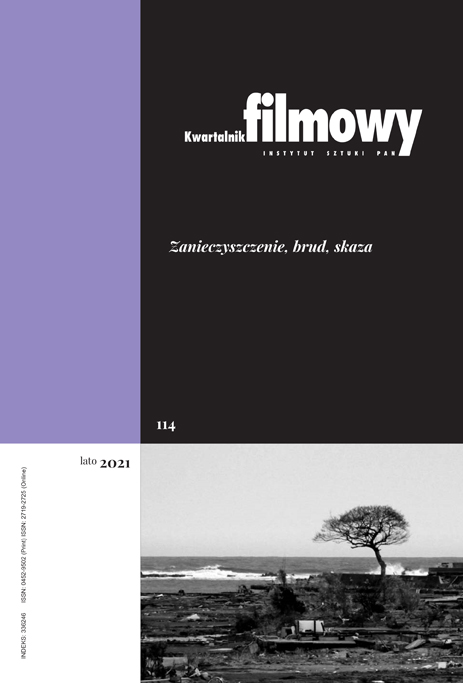Abiekt i trauma historyczna w „Wichrowych Wzgórzach” Andrei Arnold
The Abject and Historical Trauma in Andrea Arnold’s “Wuthering Heights”
Author(s): Natasza Korczarowska-RóżyckaSubject(s): Fine Arts / Performing Arts, Visual Arts, Film / Cinema / Cinematography
Published by: Instytut Sztuki Polskiej Akademii Nauk
Keywords: Julia Kristeva; Andrea Arnold; abject; heritage film; cinema of abjection; uncanny; repulsion
Summary/Abstract: According to Thomas Elsaesser, Julia Kristeva’s theoretical concept of abjection has extended beyond the psychoanalytical realm, receiving critical support in social and cultural studies, as a mode of defiance beyond victimhood. The author of the article chose Andrea Arnold’s adaptation of Wuthering Heights (2011) to probe the applicability of Kristeva’s concept for the purpose of film analysis. The film text is positioned in the wider context of the heritage film tradition (dark heritage), in the paradigm of Elsaesser’s cinema of abjection (haunted by traumatic history) and in Kristeva’s theory of intertextuality (disturbance of the political/social/cultural order). Arnold’s version of the classical Gothic novel accentuates the abjection of the “monstrous Other” through the issues of body, race and ethnicity. The article examines to what extent film can confront us with three fundamental modes of abjection: abject terror, abject language and the abject self.
Journal: Kwartalnik Filmowy
- Issue Year: 2021
- Issue No: 114
- Page Range: 6-30
- Page Count: 25
- Language: Polish

